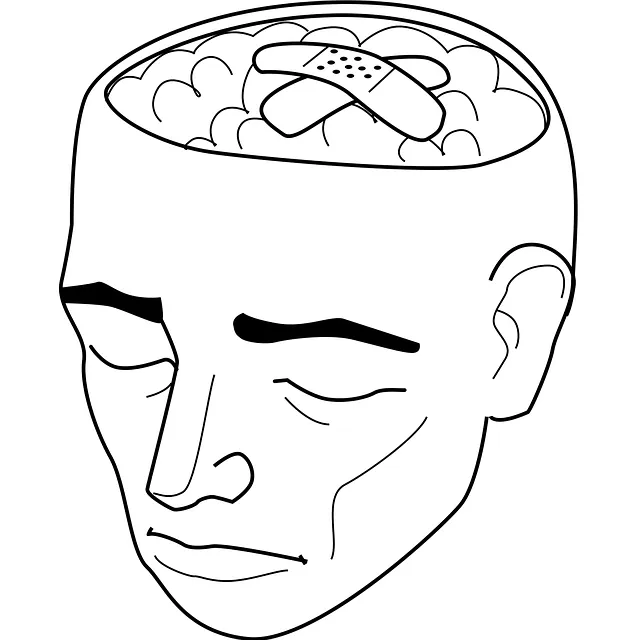The Superior Kaiser Permanente mental health center prioritizes cultural competence as a key component of high-quality care. By embracing cultural sensitivity, the center ensures trust, improved communication, and tailored treatment plans for patients from diverse backgrounds. They achieve this through discussions on cultural values, multilingual resources, personalized interventions considering ethnic differences, and innovative initiatives like podcasts appealing to a broad audience. This approach enhances patient resilience, outcomes (like mood management), and supports effective public awareness campaigns, ultimately enriching the therapeutic experience at the Superior Kaiser Permanente mental health center.
In the realm of mental healthcare, cultural sensitivity is a game-changer. Effective therapy requires understanding and respecting diverse cultural contexts, as it significantly impacts patient outcomes. This article explores the importance of cultural competence in mental healthcare, delving into challenges such as biases and communication gaps, particularly relevant in a diverse society. We offer best practices for the Superior Kaiser Permanente mental health center to foster inclusive environments, ensuring all patients receive respectful, culturally sensitive care.
- Understanding Cultural Competence in Mental Healthcare
- – Definition and significance of cultural sensitivity
- – The role of cultural competence in effective therapy
Understanding Cultural Competence in Mental Healthcare

Cultural competence is a cornerstone in modern mental healthcare, especially at superior facilities like the Kaiser Permanente mental health center. It involves recognizing and appreciating the diverse cultural backgrounds of patients, understanding how culture shapes their experiences and interactions with mental health services, and adapting practices to meet their unique needs. This approach is crucial for fostering trust, enhancing communication, and delivering culturally responsive care.
At the Kaiser Permanente mental health center, prioritizing cultural sensitivity means integrating strategies such as encouraging patient-provider discussions about cultural values and beliefs, providing multilingual resources, and offering tailored interventions that consider ethnic and racial differences in mental health expression and treatment preferences. These efforts contribute to building resilience among patients and improving outcomes, particularly in areas like mood management, while also supporting the development of effective public awareness campaigns that resonate with diverse communities.
– Definition and significance of cultural sensitivity

Cultural sensitivity in mental healthcare refers to the ability to understand, appreciate, and respect the unique cultural beliefs, values, and practices of individuals from diverse backgrounds. It involves recognizing that psychological issues and healing processes can be influenced by cultural factors, including family dynamics, community support systems, and traditional healing methods. At the Superior Kaiser Permanente mental health center, for instance, this awareness is paramount in ensuring effective care tailored to each patient’s specific needs.
By integrating cultural sensitivity into their practice, mental health professionals can foster a safe and supportive environment that encourages open communication and builds trust. This approach not only enhances emotional well-being promotion techniques but also facilitates the successful integration of mental wellness podcast series production, as content can be designed with diverse audiences in mind. Ultimately, it enriches the overall emotional healing processes within the mental healthcare setting.
– The role of cultural competence in effective therapy

Cultural sensitivity is a cornerstone of effective therapy at top-tier mental health centers like the Superior Kaiser Permanente facility. In a diverse society, therapists must possess cultural competence to bridge the gap between clients and their unique backgrounds. This involves understanding and appreciating different cultural values, beliefs, and traditions, which can significantly impact an individual’s perception of mental health and wellness.
At the Superior Kaiser Permanente mental health center, we recognize that cultural sensitivity is not just a skill but a necessity for delivering quality care. Our therapists are trained to adapt their approach based on a client’s cultural context, ensuring that every individual receives personalized support tailored to their specific needs. This holistic understanding promotes better engagement, enhances therapeutic outcomes, and fosters an environment of trust and respect, ultimately contributing to successful Depression Prevention and Stress Reduction Methods while raising Mental Health Awareness.
Cultural sensitivity is a cornerstone of quality care, especially at a leading institution like the Superior Kaiser Permanente mental health center. By embracing and practicing cultural competence, therapists can create an inclusive environment that respects diverse backgrounds, beliefs, and values. This approach not only enhances the effectiveness of therapy but also fosters trust and improved outcomes for all clients. Embracing cultural sensitivity is a vital step towards providing equitable mental healthcare services.






